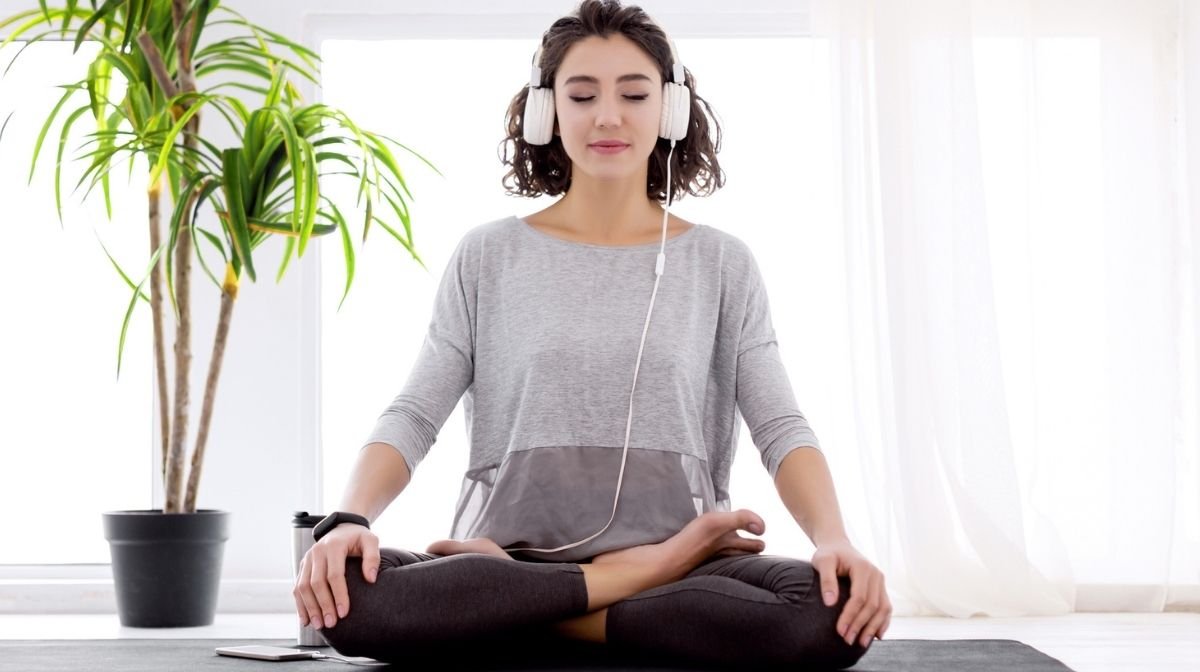Meditation can be beneficial for both your mind and your body. Meditating can help to relieve stress, alongside delivering other health benefits.
But if you’re new to meditation, where should you start? And how do you know if you’re doing it right?
What is Meditation?
Meditation is all about putting your mind and body in a relaxing state. You may think of the image of someone sitting with their legs crossed, their back straight and their hands on their knees, but that’s only one form of meditation.

Meditation looks different to everyone – it could be something as simple sitting with your eyes closed and focusing on your breathing for five minutes every day or it could be part of a routine featuring yoga poses, candles and a relaxing playlist.
Meditation Top Tips
You can meditate at any time and anywhere, but there are a few steps you can take to make your meditation session as relaxing and beneficial as possible:
- Find a quiet space: technically, you can meditate anywhere and may eventually begin to shut out the noise around you while you do it. But while you’re new to meditating, it’s best to find a space that’s as quiet as possible to help you to get into the right mindset.
- Create a relaxing environment: aside from finding a quiet spot, you might want to light some candles, put on a soothing playlist or add a few drops of an essential to a reed diffuser to help with the relaxing atmosphere.
- Establish a meditation routine: getting into the habit of meditating regularly, perhaps at the same time each week, can help it to become part of your lifestyle.
- Focus on your breathing: deep breathing should be a key part of meditation. Focus on breathing in and out, down into your stomach, while you’re in your relaxed state to calm both your mind and your body.
- Practise mindfulness: a popular way to be mindful of your surroundings while meditating is to think of three things you can see, hear, taste, smell and feel to tap into all of your senses.
- Find what works for you: meditation looks different to everyone, so experiment with different routines until you find what works best for you.
What are the Health Benefits of Meditation?
Stress Relief
Meditation can be a great way to manage stress, helping you to empty your mind of anything that might be bothering you.
If you’re not taking any steps to manage your stress levels, it can drain your energy levels, leaving you feeling fatigued and anxious, affecting your everyday life.
Improves Concentration
Meditation may also help to improve your concentration and attention span. By removing stresses from your mind and helping you to manage stress better, you may find yourself with more headspace to focus on your other priorities.

Getting into the habit of meditating could help to prevent your mind from wandering throughout the day, as you’ll know you have time to deal with worries and stresses during your next meditation session.
However, if you do find yourself struggling with high anxiety or stress levels, you should speak to a GP for professional advice.
Improves Sleep Quality
Meditating in the evening to relax your mind and body after a busy day could help you to improve your ability to get to sleep, as well as the quality of your sleep.
Making meditation part of your bedtime routine can help you to make sure you’re getting the rest you need to stay energised throughout the next day.
Try to meditate around an hour before you’d like to go to sleep to kick off your bedtime routine. After meditating, try to avoid watching TV or spending any time on your phone; instead, do something that relaxes you, such as reading or taking a bath.
Some people also like to use sleep supplements to help them to get to sleep. Find out whether you could benefit from these:

